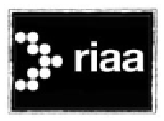There is a very well written blog entry by McQuinn on the blog MCQESQ entitled The Future of the Music Industry. You can read the article in its entirety here, and it is well worth the effort.  It attempts with acute perception and finesse to dispel the rampant rumors that the music industry conglomerates are are a dying breed of dinosaurs. The essence of the authors opinion are as follows:
It attempts with acute perception and finesse to dispel the rampant rumors that the music industry conglomerates are are a dying breed of dinosaurs. The essence of the authors opinion are as follows:
It’s popular to bash the labels (especially the majors) and to celebrate their apparently imminent demise. For me, there is no pleasure in seeing people get laid off and large companies go bankrupt in any industry. But I also dispute the idea that labels (in general) have been a bad thing for music. . . . Without record labels recording and promoting music, we would never have heard of most of the artists that we now recognize as music legends.
I wrote similar sentiments back in 2000 when Courtney Love bashed the very industry which gave her soap box any credibility at all. In the article by Mcquinn, the author is not attempting to defend all record labels nor the actions of all record industry professionals, but successfully points out that without the music industry moguls’ promotion and even love of music, there would be no “superstars” for us to download! There would only be garage bands. Ugh! (no disrespect to any particular garage band intended, but we must realize there is a reason why some bands “make it” and some don’t).
I tell my clients that they should consider the major label to be not only their marketing arm, but a bank! The fact is, a major label will customarily spends upward to 3–5 million dollars to record, advertise, market and promote ONE act. Granted, much of that investment is recoupable from the artists’ royalties (meaning that the artist must pay it back the money back of earned royalaties – the artist doesn’t pay it back if the label cans them), however, it still garners the artist a very valuable commodity: name recognition. How many superstars can you name off the top of your head? Madonna. McCartney. Garth. Prince. Dolly. The Eagles. Elvis. Elton John. I may be dating myself a bit here, but you get the idea – without the record labels, these artists would not have what they have today – the ability to annouce a concert date and sell it out a 200,000 seat venue within hours, for example. Is it totally fair to denounce the industry that helped these artists become the superstars that they are? Is it fair to expect that industry to take no profits from the product we so much enjoy?
So, what about the rumor that the major labels are heading for an imminent demise? A recent article in the September 2007 issue of Country Aircheck entitled Music Sales at a Crossroads – Labels Face the CD’s Swan Song gets a little more specific. The article cites RIAA-compiled data that illustrates that the gross sales of the CD format have diminished by almost one third since 1999, when it was over 14 billion, to 9 billion last year. In the country genre, where the CD format is still a popular one, total sales through September 2007 were 31 million units, whereas the genre tallied a total of 75 million units last year. Overall, total sales of CD for all genres is down 20% over the same time last year, a very significant drop. While I do not believe the music industry is going away, I do believe that the CD format will ultimately be gone. Tower’s demise was a forecast of this inevitability.
In the past, loss in profits from one format meant a rise in profits from another format, as, for example, when the CD format replaced records and cassettes, or when cassettes replaced 8–tracks (for those of you old enough to remember tape-based product). But in today’s market, the sell of digital downloads is not generating enough profilt to offset the loss of profits from the demise of CDs. Why, you might ask? I think all of us know that the reason for this is that the majority of songs being consumed today are either ripped from somone else’s CD or iPod, or they are obtained over the P2P networks. Those methods of obtaining music do not profit the artist, the songwriter, or, of course, the record labels.
McQuinn’s article points out that the label must find alternative methods of making profits, and mentions touring, merchandising and expanded licensing. This is not a new concept as, in fact, I have already started seeing contracts from labels taking an interest in more of the revenue streams than they have in the past. As Joel Galante, chairman of Sony BMG Nashville, points out in the Country Aircheck article, “you can’t have the label engine driving everything and being compensated the way it was before. We are taking most of the risk and there are a lot of revenue streams making money.” The trend in the music industry is for more independent-type deals with the artist in which the artist actually becomes a partner with the label. I also believe that we will see a resurgence of the “single” concept and/or the “mini-album” and a shift away from the 10–12 song album idea.
The music industry will also find reprive in the form of direct-to-retail marketing. The Eagles release through Wal-Mart is only one in a long chain of well-known artist who have found their own path to the retail market — Prince, McCartney, Radiohead, Nine Inch Nails — circumventing the Big Four: Song BMG, Warner, UMG and EMI. These artists are certainly blazing new trails and have been successful. The major labels, however, still maintain that they have the edge when it comes to developing and promoting artists and/or distributing their product. In view of the success of the aforementioned artists, however, this point is certainly not a given anymore.
We are, as I said in earlier articles and blogs, facing a new paradigm in the music industry. The major labels have yet, in my opinion, found the holy grail of digital downloads. What can the labels do to move into the 21st century? The answer cannot be yielding 90% of the market to iTunes. Labels have to take the lead of EMI and UMG and offer their music without any digital rights management — after all, the music on CDs is DRM-free! They must abandon the misplaced trust in “subscription-based” services which require monthly fees. As I have maintained in my ten years of analyzing and thinking about this issue, I believe that they must do what all good entrepreneurs have done: find a price point that will make it foolish for people to download music through a P2P and risk litigation. Sell the product at a reaonsable price. Most people, myself included, want to pay for their music — they just don’t want to overpay for their music. The first configuration of label and online distributor that finds that right combination of value and profit — i.e. the right price point — will be the significant winner in my opinion.
 BMI’s Songwriter of the Year in 1986 and has over 500 songs registered with the performance rights organization. In 2002, he scored big with another number one song Beautiful Mess, recorded by Diamond Rio, which was also co-written by Sonny, Shane Minor and Clay Mills. Sonny is no stranger to number one hits, however, since he has scored over ten in his illustrious career and has over 17 other BMI awards and honors.
BMI’s Songwriter of the Year in 1986 and has over 500 songs registered with the performance rights organization. In 2002, he scored big with another number one song Beautiful Mess, recorded by Diamond Rio, which was also co-written by Sonny, Shane Minor and Clay Mills. Sonny is no stranger to number one hits, however, since he has scored over ten in his illustrious career and has over 17 other BMI awards and honors.





 Mr. Lee took several of his clients with him to the the new agency, including Lee Ann Womack, Miranda Lambert and Heartland, but 360’s final roster has not been published. In addition to these three artists, Lee was the responsible agent at Buddy Lee for Bo Bice, Mark Chesnutt, Jared Nieman, Rhett Akins, and Thomas Martinez. Tony Conway remains as president of Buddy Lee Attractions. You can check out his current
Mr. Lee took several of his clients with him to the the new agency, including Lee Ann Womack, Miranda Lambert and Heartland, but 360’s final roster has not been published. In addition to these three artists, Lee was the responsible agent at Buddy Lee for Bo Bice, Mark Chesnutt, Jared Nieman, Rhett Akins, and Thomas Martinez. Tony Conway remains as president of Buddy Lee Attractions. You can check out his current  Fueled in part by its success in Virgin v. Thomas, the RIAA (on behalf of EMI Music, Sony BMG Music Entertainment, Universal Music Group and Warner Music Group) issued a new round of pre-litigation letters to college students across the country Thursday of last week. This is its ninth such round of letters since beginning the campaign against downloaders nearly two years ago. This round included letters to 32 students at Nashville’s prestigious Vanderbilt University. Vanderbilt received the third greatest quantity of letters in this round, behind University of Southern Florida, with 43 and Southern California with 37.
Fueled in part by its success in Virgin v. Thomas, the RIAA (on behalf of EMI Music, Sony BMG Music Entertainment, Universal Music Group and Warner Music Group) issued a new round of pre-litigation letters to college students across the country Thursday of last week. This is its ninth such round of letters since beginning the campaign against downloaders nearly two years ago. This round included letters to 32 students at Nashville’s prestigious Vanderbilt University. Vanderbilt received the third greatest quantity of letters in this round, behind University of Southern Florida, with 43 and Southern California with 37. ells songs without copy protection in this fiscal quarter, the sales of said music will be a component of the report. Many financial analysts are expecting Amazon to announce earnings of around 18 cents per share on just over $3 billion in revenue for the quarter.
ells songs without copy protection in this fiscal quarter, the sales of said music will be a component of the report. Many financial analysts are expecting Amazon to announce earnings of around 18 cents per share on just over $3 billion in revenue for the quarter. It attempts with acute perception and finesse to dispel the rampant rumors that the music industry conglomerates are are a dying breed of dinosaurs. The essence of the authors opinion are as follows:
It attempts with acute perception and finesse to dispel the rampant rumors that the music industry conglomerates are are a dying breed of dinosaurs. The essence of the authors opinion are as follows: